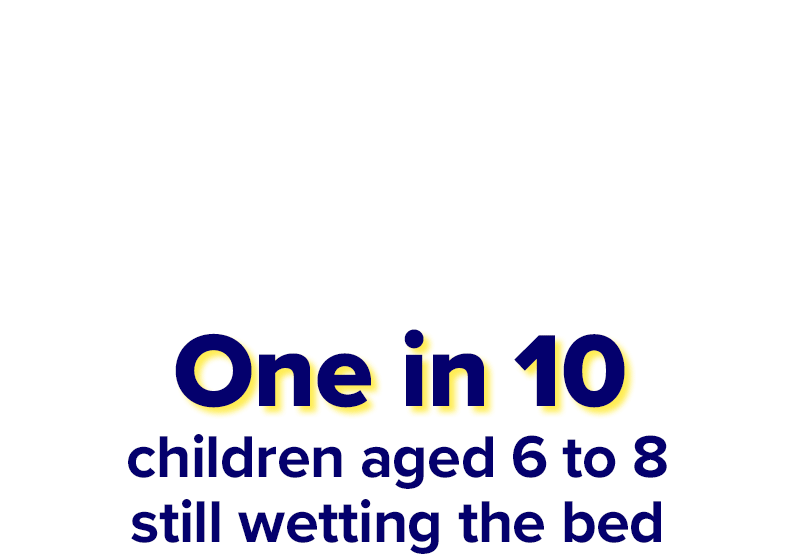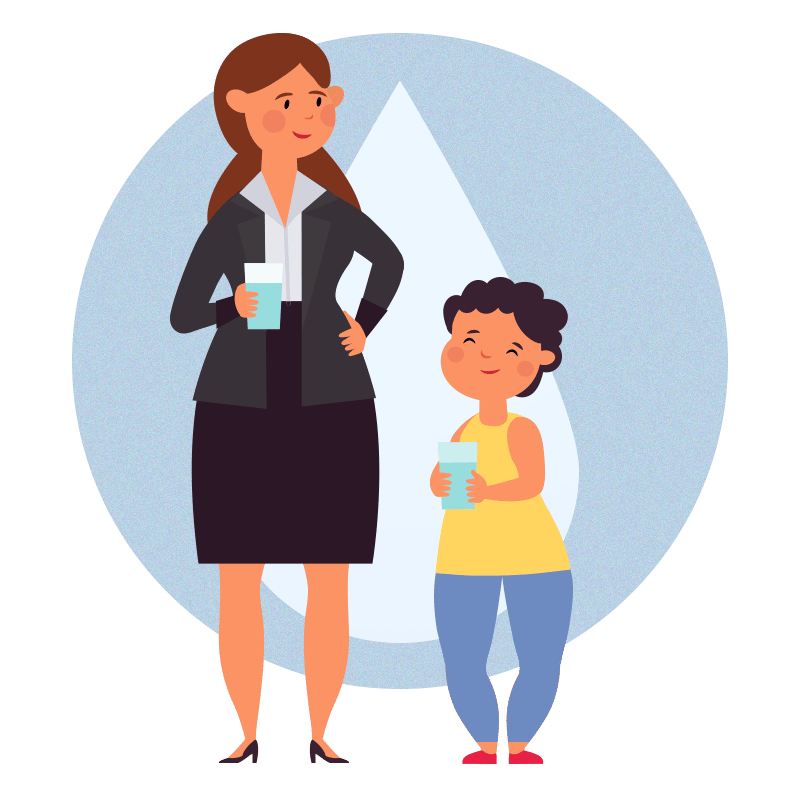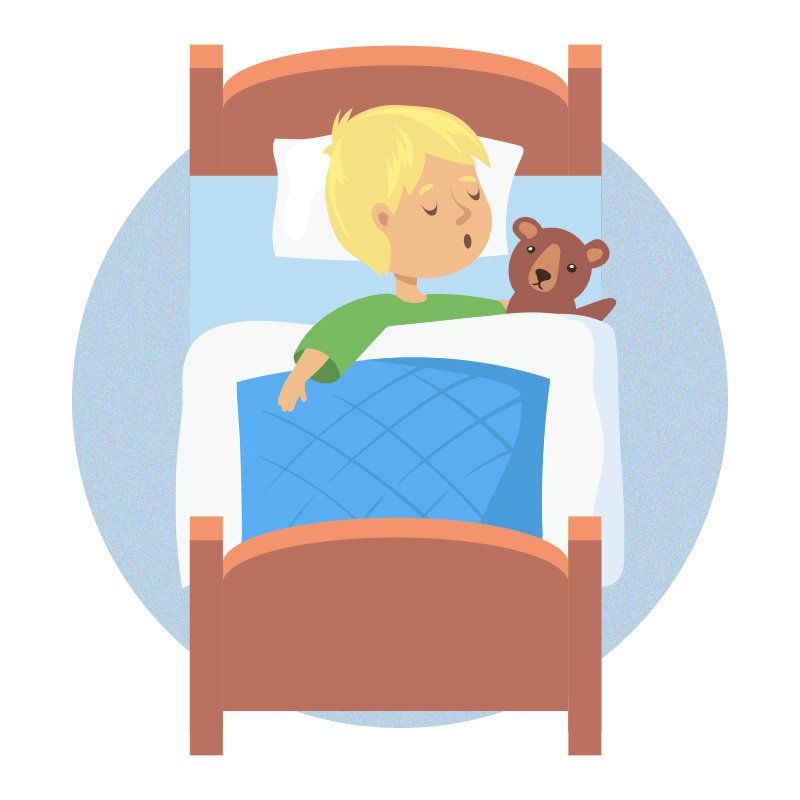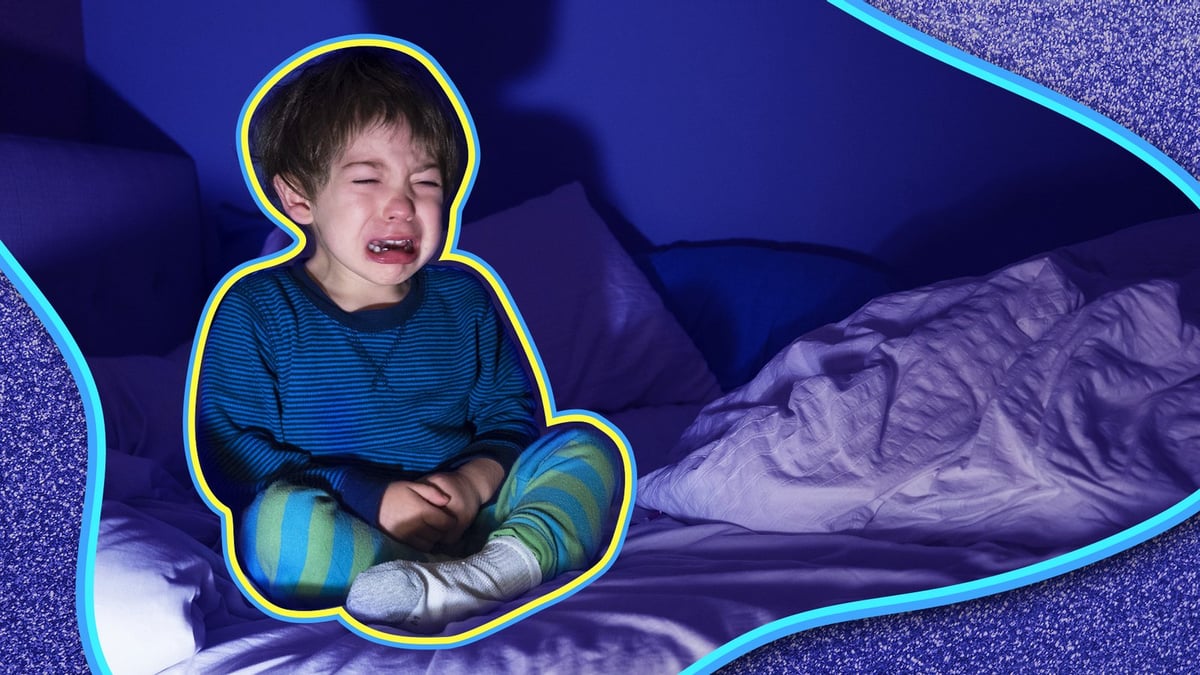Amanda* has it all, as the saying goes. A beautiful family of her own, a law degree and her own successful law firm, where she works day-in-day-out practicing family law.
“That’s great for Amanda,” I imagine you’re saying. “But what does this have to do with bedwetting, the topic I smashed my finger on this link to learn more about?”
I’m glad you asked. You wouldn’t have to do any mental gymnastics to figure Amanda was probably a remarkable child — maybe even gifted.
So, you may be surprised to learn that at around eight years old, Amanda’s parents, especially her mother, was afraid of being judged by other parents about her daughter’s progress.
Amanda was excelling both socially and academically, however, was having trouble staying dry at night.
“I had a happy family life and childhood but generally suffered anxiety as a child. My parents were nothing but supportive of me and the bedwetting.”
Now, let’s rewind to all the stuff I said about Amanda being a lawyer. To be honest, I don’t know if any of that stuff is true, but here’s my point: Amanda is the rule, not the exception. And what I mean by that is that kids are on their own timelines, and even if a child is thriving in every other area of their life, there is still so much anxiety around their bedtime journey.
This anxiety – whether from the child or the parent – is often rooted in shame and judgement because a stigma has been created around the conversation of bedwetting. And the best way to reverse this, is to have honest, candid and judgement-free conversations with each other.
Bedwetting is so common — with one in 10 children aged six to eight still wetting the bed — that I knew I’d have no trouble finding parents willing to share their experiences.

What I was surprised — and then delighted — by, was Amanda, because she reached out not as a parent, although she is one now, but as that child who was still wetting the bed at a later age.
Amanda reached out purely to let parents who are reading this know that she eventually outgrew the issue and that wetting the bed as an eight-year-old has had absolutely no bearing on the course of her adult life. And of course it didn’t!
But when you’re a parent in the trenches, you can’t help thinking that every single thing that seems a little out of the ordinary — whether that’s your six-year-old refusing to eat anything that isn’t beige or your seven-year-old needing to wear night-time pants overnight — is going to catastrophically alter your child’s future, and whether it’s logical or not, that’s a heavy weight to carry.
So, how about we talk about this often normal, extremely common childhood condition and get some facts straight with an expert on the topic.
Plus, we speak to some parents who are definitely expert bed changers and sheet washers — something no one wants to be doing more than is absolutely necessary.
The facts.
Let’s just cover the technical (read: boring) points first. As I’ve already mentioned, nocturnal enuresis — doctor speak for bedwetting — is a super common occurrence, with one in 10 children aged six to eight still wetting the bed.
Although you might have heard it isn’t really considered an issue until children are over seven, nocturnal enuresis is actually a diagnosable condition from the age of five.
So, why do some children get dry overnight easily, while others take much longer? I’m going to answer this question I’m pretending you asked with another question: Did you wet the bed as a child?
If you answered ‘yes’, you might be surprised to find out that it’s a pretty common condition. The usual cause is a neurological developmental delay. Or, in simple terms, the child’s brain and bladder aren’t fully connected yet – something entirely out of their control.
However, there are some genetic factors that might have some bearing over the chances of your child developing enuresis. If the child’s mother had the condition, it’s three-and-a-half times more likely for them to also develop it, and 10 times more likely in children of fathers who had the condition.
It is also more common in boys than girls.
It’s more than extra laundry to wash.
While most people know that this is quite a common occurrence, it just isn’t talked about very much — and when it is, the conversation is often based on shame and blame. This lack of open discussion has also led to a lot of misconceptions about bedwetting, which can cause more stress and frustration for children and parents dealing with the issue.
Despite its frequency, bedwetting can have a real impact on a child’s self-esteem and can cause a lot of anxiety around milestones which should be exciting, such as sleepovers and school camps.
Educational and developmental psychologist Maria Dhroso sees around 10 children and their parents every week for treatment for bedwetting, with the majority of those being seven-year-old boys, and she says their self-esteem and confidence can really take a blow.
“One of the downsides of bedwetting is not the bed wetting itself, but the stigma,” Maria says.
I spoke with one mum, Nerida* about her son’s experience of bedwetting, and in the course of the conversation discovered that she is also a primary school teacher. And boy, did she have some reassuring news for the nervous campers and their equally nervous parents.
Firstly, there’s a very good chance your child won’t be the only one worried about wetting the bed on camp.
“As a teacher, I’ve been on Year 3 and 4 camps where you’ve got, out of 100 kids in the grade, probably 10 of them in night-time pants,” Nerida says.
Secondly, the teachers have this routine down pat, and will ensure it is dealt with discretely, allowing your child to fully participate and have a wonderful time.
“We have a little meeting with them before going on camp to work out a strategy, which is usually that they keep the night-time pants down the bottom of their sleeping bag and leave it down the bottom of their sleeping bag in the morning, then the teacher goes in and retrieves them later once they’re out of the cabin,” Nerida explains.
“There’s a lot of very stressed-out kids – even in Year 5 and 6.”
Night-time pants have come a long way from nappies.
On the topic of night-time pants, they have come a long way over the years too. Huggies DryNites Night Time Pants are designed specifically for bedwetting and to help kids maintain their confidence and self-esteem.
By offering up to 12 hours of protection, children can go to bed feeling confident that they’re protected for the whole night. They can sleep better too, given Huggies’ innovative new Thintech with rapid absorption - a unique protection layer that quickly draws and locks away moisture, keeping them comfortable and dry.
Most importantly for the kids, they’re so thin that they really do look and feel just like undies, designed to disappear under pyjamas. No more worries about the bulky nappy-bottomed look that is oh so cute on babies, but not really the look school kids are going for.
What can parents do to assist their children in getting dry overnight?
1. Drink more water.

It’s really important to emphasise that wetting the bed is not the child’s fault, and night-time dryness cannot be taught or trained in the same way daytime toileting can be. However, when Maria meets with new patients, she looks at a few things including their water intake.
While you might think that decreasing fluid makes sense, Maria finds that in around 95 per cent of cases, it actually needs to be increased.
“The whole idea is that if you increase water intake throughout the day, number one: they’re not going to be as thirsty at night, gulping down heaps of water because they’re going to be well-hydrated, and number two: the theory is that the bladder is strengthened,” she explains
“The bladder is made up of muscle, so the more they drink water and wee, basically getting that bladder working increases the strength of the bladder and increases the strength of the signal that gets to the brain at night. It seems counter-intuitive, but the more water they actually have, the stronger the bladder and also the stronger the signal to the brain.”
2. Make sure it’s just water.

Okay, we’re increasing fluid intake. But what they’re drinking can also factor into the equation.
Samantha*’s eight-year-old son, Ollie*, had been mostly dry overnight for years, but suddenly started wetting the bed again.
“It was a bit frustrating, because he often comes in overnight to sleep with us,” Samantha says.
“We’d wake at 3am in a huge puddle and have to change the whole bed. We were tired and he was upset and feeling babyish, but he couldn’t control it.”
After a couple of weeks of intermittent bedwetting and disrupted sleep for the whole family, Samantha linked the onset with the hot chocolate Ollie had recently started enjoying as a treat after dinner. After cutting it out, the bedwetting stopped immediately. Maria says this is common.
“Soft drinks, cordial and hot chocolate aren’t recommended in the evening for children who wet the bed because it can make the bladder sort of twitchy, and expel the urine involuntarily,” she explains.
“That’s an additional thing we talk to children about, particularly at the end of the treatment when we’re talking about relapse prevention.”
3. Don’t punish or chastise them — they can’t help it.

Punishing or chastising your child for bedwetting — something they can’t control — doesn’t help. Instead, Maria says you can reward and reinforce behaviours that children do have control over, that support long-term dryness, such as adequate water intake and regular toileting.
4. Help them feel comfortable and safe at night.

“Discuss and remedy any barriers to using the toilet during the night, like keeping night lights on and encouraging your child to call out to you if they need support with getting up to use the toilet during the night,” she says.
Also using DryNites Night Time Pants are a great way to make your child feel comfortable at night, alleviating any stress about ‘what-if’ scenarios.
5. ‘Liftings’ won’t train them.

“Parents do ‘liftings’, where they sort of half-wake/half-drag their children to the toilet before the parents go to bed,” Maria says.
“That’s not really a strategy to get them dry permanently, that’s more of a strategy to get them through the night.”
When should you seek treatment?
Okay, I think we’re pretty comfortable now that bedwetting is common, and often, children really do become dry in their own time. But if you’re finding it just isn’t happening, and perhaps your child is bothered by it and would like to try something to speed up the process, there are effective treatments available.
As for when to seek help, Maria says it varies from child to child.
“If there’s a family history and there are no other concerns, for the actual treatment, ideally it’s around eight years of age. It depends on the maturity of the child as well,” she says.
First, however, Maria says it’s essential to rule out any more serious medical issues first.
“I don’t take anybody for treatment unless they’ve been referred by a medical practitioner, because sometimes it can be symptomatic of other issues,” she explains.
“Always check for constipation, because constipation is one of the most highly correlated things to do with bedwetting.
“There are a number of medical conditions that need to be ruled out before we can go ahead with the treatment.”
What does treatment look like?
Our hero teacher Nerida recently underwent a gruelling couple of weeks of bedwetting treatment with her seven-year-old son James*, who was starting to feel a bit left behind as his friends and even his little sister became dry overnight.
“He had a lot of heavy wetting and nappies that would leak through — until he was about three, we kind of had to double-nappy him,” Nerida says.
“He seemed to sleep quite deeply and not wake up to wee.”
By the time they broached the subject with James’ paediatrician, James was well on board with getting overnight trained.
How effective is the treatment?
Maria says the treatment she does is extremely effective, but that some of those children will require a second treatment.
“It’s close to 100 per cent effective, but I always give parents the bad news that one in ten will need a second use of the alarm,” she says.
“But again, out of those ones that relapse, they have that second treatment and then they’re right for life, it’s a permanent thing.”
Nerida says although it was a tough first 10 nights, it was worth it.
“We really only plunged into the training when we saw it was starting to bother James, and we wouldn’t have wanted to embark on that without his wanting to do it as well, because that was some hard yards.
“It’s been a long seven-and-a-half years and a lot of nappies, but I’m glad we’re past that now.”
However, while there are different options out there, the most important thing to remember is that everyone – and every child – is different. And as parents, the best thing we could do for our kids is remind them of this. That they’ll become dry in their own time.
*Names have been changed to protect the privacy of the parents and children mentioned in this article.
